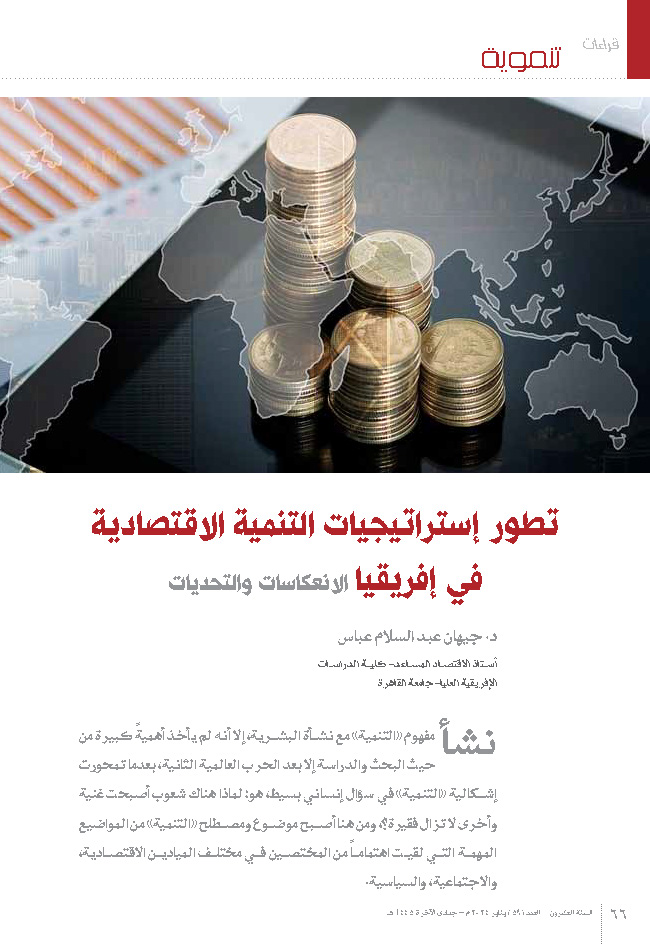Publisher: Qira’at Afriqiyah Magazine
Issue: 59, January 2024
ISSN: 2634-131X
Year : 20
Pages: 66-83
Author: Dr. Gihan Abdel Salam
Download pdf

Abstract:
There are many different approaches seen as a path to economic development, but the actual reality has proven the failure of some experiments that focused largely on achieving quantitative rather than qualitative economic growth, especially when the African peoples suffered from living conditions that are not compatible with their needs, and Here, the most prominent trend that the development process has focused on since the 1990s is what is known as human development, meaning that the primary goal of development is to advance people and their abilities and improve their standard of living and quality of life. This was followed by trends towards sustainability in its various aspects. The African continent was not isolated from these modern trends. Its Sustainable Development Plan 2063 focused on various development strategies. It highlighted modern trends to achieve that development :
enhancing continental integration , the shift towards economic development , Green and blue Economy , as well as enhancing the role of the knowledge economy. Despite the challenges facing these new development transformations due to the continent’s political, economic and social conditions; However, they are considered positive steps aimed at comprehensive and sustainable development transformation, especially after the recent global economic crises represented by the Corona pandemic, and then the repercussions of the Russian-Ukrainian war, created the necessity and importance for Africa to raise its levels of economic development, to provide its main needs, and to support its relations with countries. African neighborhoods within the framework of effective regional integration, in addition to the inevitability of implementing the green economy and the shift towards the digital economy, which has become an icon of economic transactions in the current circumstances. The study concluded that focusing on one element to achieve economic development is largely inappropriate for achieving the desired goals in Africa. Thus, development trends serve each other, indicating the necessity of integration between the political, economic and cultural dimensions in order to keep pace with successive and evolving development goals over time in a way that serves the African continent and its peoples.
